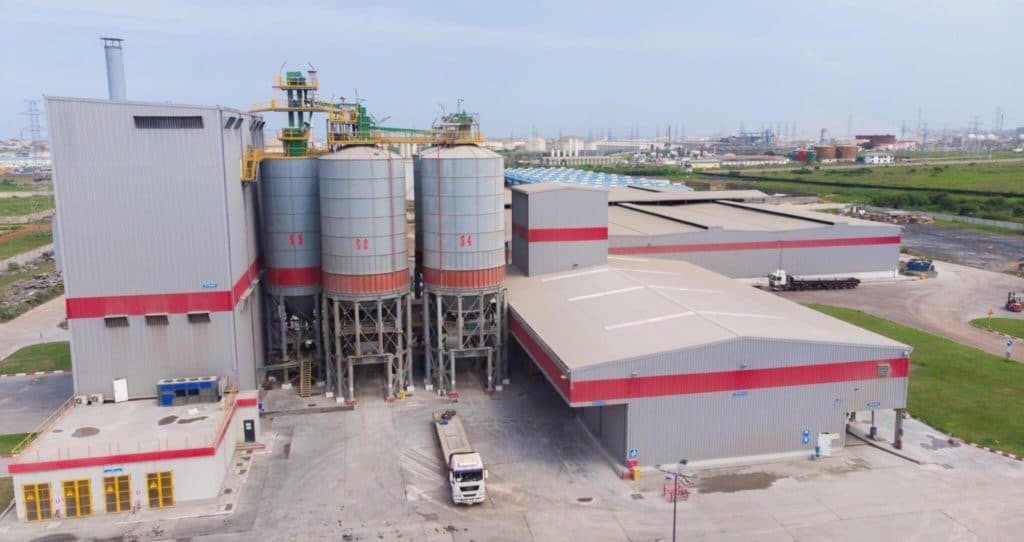How to produce sustainable cement in Ghana? This is the equation that Denmark’s Investment Fund for Developing Countries (IFU) and Norfund, a Norwegian investment company, have decided to invest in. The two investors partnered with engineering firm FLSmidth to invest $27.9 million in Continental Blue Investments Ghana (CBI).
Norfund’s share of the funds is $7.5 million, with the remainder being invested by IFU. With this financing, the cement manufacturer CBI will reduce the use of clinker in its cement manufacturing process. Clinker is obtained by calcining a mixture of alumina silicic acid, iron oxide and lime, then grinding and mixing it with other elements to produce cement.
An alternative to clinker
The production and export of clinker via large ships is extremely polluting. In fact, the production of cement, an essential component of concrete, is responsible for 7% of global carbon dioxide (CO2) emissions according to the Global Cement and Concrete Association (GCCA), based in London, UK.
Read also- KENYA: cement manufacturer Bamburi to equip its plants with two solar PV plants
IFU and Norfund’s investments will allow CBI to find an alternative to clinker. The cement maker is focusing on calcined clay. And that’s where engineering firm FLSmidth comes in. The Copenhagen, Denmark-based company will provide the technology and equipment needed to build CBI’s clay calcination unit. The facility will have a capacity of 405,000 tons per year.
Reducing CO2 emissions from cement production
The cement producer “expects both a financial and environmental return on its investment through reduced CO2 emissions, energy and fuel savings and reduced clinker import costs,” IFU says. CBI has a plant that produces 550,000 tons of cement per year in the southern Ghanaian port city of Tema.
“By investing in advanced technologies that reduce emissions, while increasing local supply and production, we want to contribute to development, business growth and climate change mitigation,” says Naana Winful Fynn, regional director for West Africa at Norfund. According to the investment company, the clay calcination plant will reduce CIB’s CO2 emissions by up to 20% per ton of cement produced. With the new plant, the company is expected to avoid emissions of 300,000 tons of CO2 equivalent per year.
CBI will also become a pioneer cement manufacturer by replacing part of the clinker with calcined clay. The company plans to increase its presence in Ghana’s underserved markets by doubling its total cement production capacity from 555,000 to 1.4 million tons per year.
Jean Marie Takouleu
